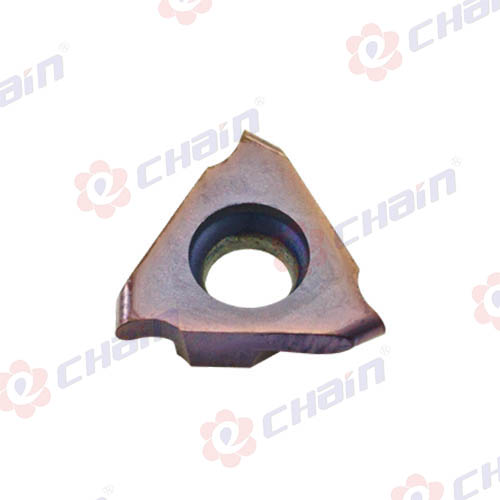Tailored Precision: Specialized Grooving Inserts for Specific Materials
2024-03-19
Introduction:
In the realm of metalworking, achieving precision and efficiency often requires specialized tools designed to tackle the unique challenges posed by different materials. Grooving inserts, essential cutting tools for creating grooves, slots, and recesses in workpieces, are no exception. Manufacturers offer a variety of specialized grooving inserts tailored for specific materials such as stainless steel, aluminum, or exotic alloys. In this blog, we'll explore the importance of these specialized inserts and how they optimize machining processes for superior results.
1. Stainless Steel Grooving Inserts:
Stainless steel is known for its excellent corrosion resistance, strength, and durability, but it can be challenging to machine due to its high work hardening tendency and tendency to generate heat during cutting. Specialized grooving inserts for stainless steel are designed with features such as high wear resistance, heat resistance, and chip control capabilities. These inserts typically feature advanced coatings, such as titanium carbonitride (TiCN) or diamond-like carbon (DLC), to enhance performance and extend tool life when machining stainless steel components. With optimized cutting geometries and chipbreaker designs, these inserts ensure precise grooving operations with minimal tool wear and superior surface finish quality.
2. Aluminum Grooving Inserts:
Aluminum is a lightweight, soft material known for its excellent machinability and thermal conductivity, but it can pose challenges such as chip control and built-up edge formation. Specialized grooving inserts for aluminum are engineered to address these challenges and optimize performance in aluminum machining applications. These inserts typically feature sharp cutting edges, polished surfaces, and specialized chipbreaker designs to promote efficient chip evacuation and prevent chip re-cutting. With coatings tailored for aluminum machining, such as titanium nitride (TiN) or titanium aluminum nitride (TiAlN), these inserts ensure smooth, burr-free grooving and extended tool life when working with aluminum alloys.
3. Exotic Alloy Grooving Inserts:
Exotic alloys, such as titanium, Inconel, and Hastelloy, are renowned for their high strength, corrosion resistance, and temperature resistance properties, but they can be extremely challenging to machine due to their hardness and toughness. Specialized grooving inserts for exotic alloys are specifically engineered to withstand the demanding conditions encountered when machining these materials. These inserts feature ultra-hard materials, advanced coatings, and specialized cutting edge geometries designed to combat heat and abrasion and deliver exceptional performance in exotic alloy machining applications. With superior wear resistance and chip control capabilities, these inserts ensure precise grooving operations and prolonged tool life when working with exotic alloys in aerospace, automotive, and medical industries.
Conclusion:
In conclusion, specialized grooving inserts tailored for specific materials such as stainless steel, aluminum, or exotic alloys play a crucial role in optimizing machining processes and achieving superior results. By addressing the unique challenges posed by different materials, these inserts ensure precision, efficiency, and extended tool life in metalworking operations. Whether it's stainless steel components requiring high wear resistance, aluminum parts demanding efficient chip control, or exotic alloys necessitating exceptional toughness, specialized grooving inserts empower manufacturers to tackle diverse machining challenges with confidence and precision. As material technologies continue to evolve, the quest for innovation in specialized tooling solutions remains ongoing, driving continuous advancements in grooving insert design and performance.



